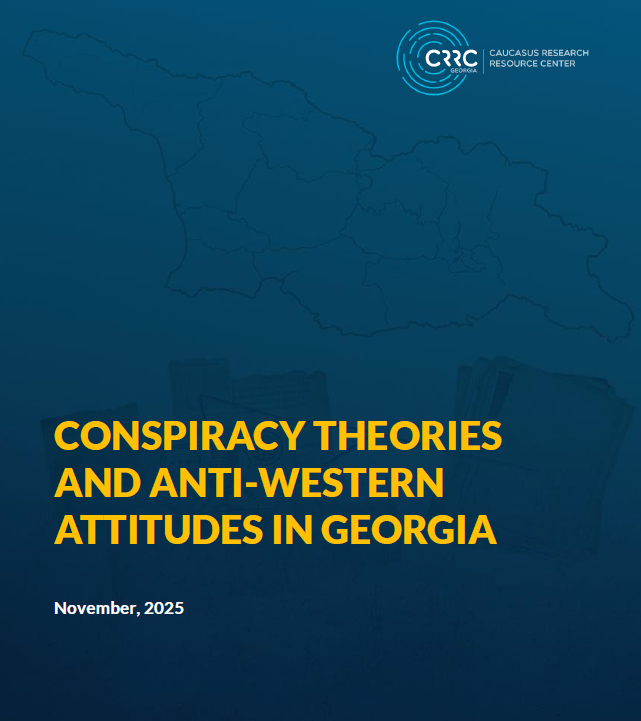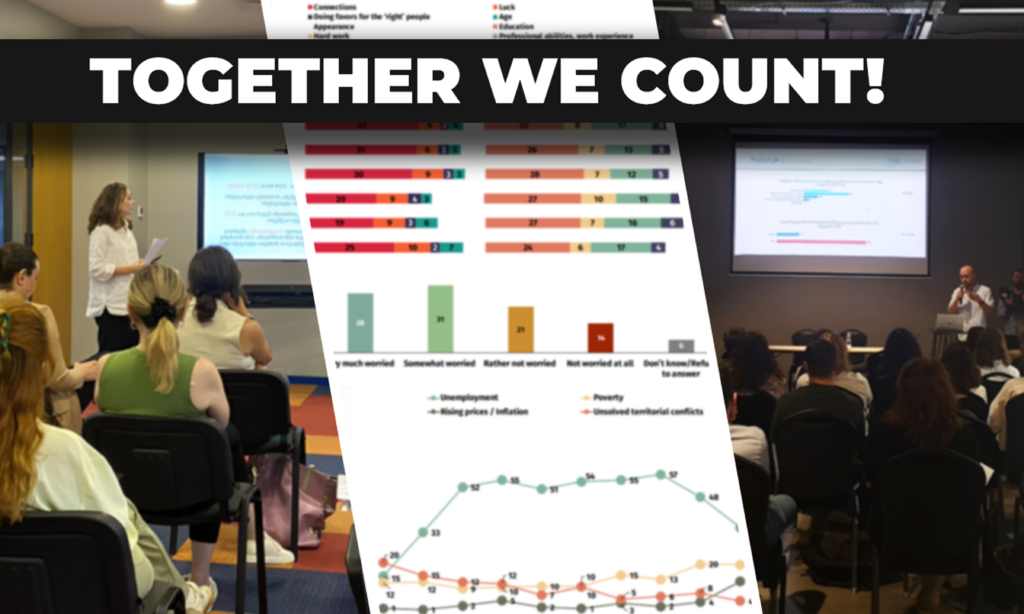Social capital is a set of networks between individuals and groups of individuals and the mutual trust related to these networks. It facilitates communication and cooperation between people and makes available resources that would be otherwise out of reach. Thus, social capital is crucial for social and economic development. Caucasus Barometer 2019 data shows that while the level of structural and cognitive social capital in Georgia is somewhat low, with the cognitive component lagging further behind, the bonds between the two are strong and stronger than each’s link to other factors.
While there are different definitions of social capital, most of them point to structural and cognitive elements of the phenomena. The former refers to networks and connections, and the latter to the feeling of trust and reliability among these connections. For example, networks refer to connections people have with people from similar as well as different groups, horizontal as well as vertical. It is relations and repetitive and reciprocal exchanges with others. The cognitive component of social capital points to the feeling of confidence in others and various institutions. Of course these two are interrelated, and they influence and cultivate each other.
Structural social capital is measured using questions assessing people’s involvement in various activities and their ties with various groups of people. Caucasus Barometer survey asks a number of such questions, including whether someone:
- Helped a neighbor or a friend with some household chores or childcare during last 6 months;
- Helped someone to resolve a dispute during last 6 months;
- Helped cleaning public space during last 6 months;
- Did volunteer work without expecting compensation during last 6 months;
- Donated money to a church or mosque during last 6 months;
- Attended a public meeting during last 6 months;
- When you get together with your close relatives and friends, how often do you discuss each other’s private problems?
- Would you approve or disapprove of women of your ethnicity marrying Armenians living in Georgia?
- Would you approve or disapprove of women of your ethnicity marrying Azerbaijanis living in Georgia?
- Do you have a close friend currently living abroad, outside the borders of Georgia?
- Do you have a close relative currently living abroad, outside the borders of Georgia?
When it comes to cognitive social capital, it is assessed based on how much people trust others and various institutions. CB contains a number of questions measuring cognitive social capital, including:
- Generally speaking, would you say that most people in Georgia can be trusted, or that you can’t be too careful in dealing with people?
- How much do you trust or distrust banks?
- How much do you trust or distrust NGOs?
- How much do you trust or distrust media?
- How much do you trust or distrust religious institutions?
Variables measuring trust towards political institutions and specific actors are excluded when calculating cognitive social capital in this writing, as politically loaded attitudes are more likely to be driven by the attitudes towards specific political actors and shift based on ongoing events.
To describe Georgia’s population in terms of structural social capital, the answers to the above questions were recoded so that respondents receive one point if their answers indicate the presence of structural social capital and 0 if not. Responses were then combined in an index of structural social capital that ranges from 0 to 11, with 0 indicating the lowest level of structural social capital and 11 the highest.
The mean score for structural social capital in Georgia is 4.54 and though it might seem that it is close to the theoretical average (5.5/11), ¾ of the population has structural social capital lower or equal to 6 and only 4% of the population scores higher than 8.
As for cognitive social capital, answers to the questions related to trust were transformed and combined in an index of cognitive social capital that ranges from 0 to 5, with 0 indicating the lowest level of cognitive social capital and 5 the highest.
The mean score for cognitive social capital in Georgia is 1.52 and ¾ of the population has structural social capital lower or equal to 2. Only 6% of the population scores higher than 3.
The above shows that more people have higher structural social capital, compared to cognitive social capital. This means that networks and links are more developed in Georgia than the trust component of social capital.
To understand how structural and cognitive social capital varies between different demographic groups, regression models were constructed. They included sex (male, female), age group (18-34, 35-54, 55+), settlement type (capital, urban, rural), education (secondary or lower, secondary technical, tertiary), employment status (employed, not employed), having debt (household has debt, household does not have debt), and an additive index of ownership of different items, a common proxy for wealth. The cognitive social capital index is also included in the model of structural social capital and vice versa.
In theory all the variables included in the regression model are usually related to social capital. Specifically, people with more connections to various groups and opportunities for interaction have higher levels of both structural and cognitive social capital.
Regression analysis shows that structural social capital is higher in the capital than in other urban or rural areas. Younger people are also more likely to report higher structural social capital than people in their middle years or older people. People with tertiary education are also more likely to have higher levels of structural social capital. This is logical assuming that Tbilisi offers more opportunities to participate in diverse group activities and connect with others. Similarly, younger people might have more time and means of interacting and participating in various activities that form networks. Education may also open up even more opportunities to interact with different groups and participate in various activities. It is noteworthy that as theory would suggest, structural social capital is associated with cognitive social capital. People with higher levels of trust tend to have more connections with different people and groups.
Structural social capital is not associated with other factors. For example, people who are employed are expected to have just slightly higher structural social capital than people who are not employed. There is also no difference in terms of sex, a household having or not having debt, and wealth.
As for cognitive social capital, regression analysis suggest that there is no difference in cognitive social capital in terms of settlement type, sex, age, education, economic situation, employment status or households having or not having debt. The only variable that cognitive social capital is related to is structural social capital, as already shown above. This means that higher levels of trust are not really associated with being part of a certain demographic group or having a specific characteristic, but more closely tied to the amount of networks someone has. The more structural capital one has, the more likely one is to have higher cognitive social capital.
Regression analysis shows that structural social capital is related to various demographic characteristics though cognitive social capital is only predicted well by structural social capital. This relationship is logical and in line with previous research that indicates that these two are bound together. The fact that cognitive social capital is not really related to various demographic characteristics might suggest that structural social capital drives cognitive social capital.
Structural and cognitive social capital in Georgia is average or lower for the majority of the population. While various factors, such as age, education, settlement type, and cognitive social capital predict the level of structural social capital, cognitive social capital is mostly related to structural social capital. Nevertheless cognitive social capital is of great importance, as it simplifies communication and makes connections useful. Therefore, it might be useful to further study the ways in which structural social capital translates into cognitive social capital.










